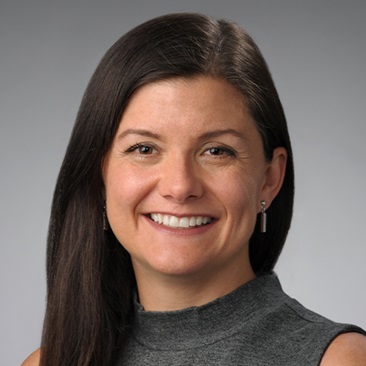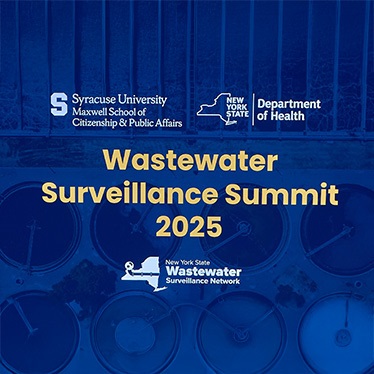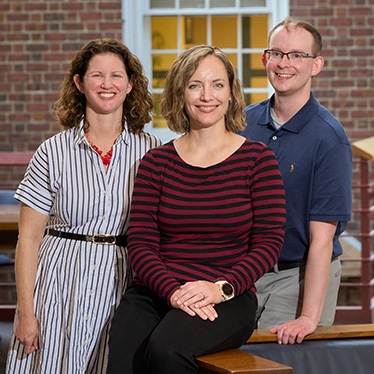Lerner Center and Maxwell X Lab Join Sheriff’s Office to Reduce Illicit Drugs’ Impact
September 15, 2023
Supported by a $1.2 million federal grant, they will evaluate the effectiveness of treatment and recovery services for those who’ve been incarcerated.
The Lerner Center for Public Health Promotion and Population Health and Maxwell X Lab have partnered with the Onondaga County Sheriff’s Office on an initiative aimed at reducing the impact of opioids and other illicit drugs.
The two Maxwell School-based centers were invited to join the project earlier this year, after the local sheriff’s office received a $1.2 million grant from the Comprehensive Opioid, Stimulant, and Substance Use Program. The funding is provided by the U.S. Department of Justice’s Bureau of Justice Assistance to support state and local governments in their response to opioid and other illicit substance abuse.
“The Lerner Center and X Lab will aid them in evaluating their processes and outcomes associated with their grant-funded programs to build strong coordination between custody and community-based treatment and establish peer recovery support services for individuals leaving jail and returning to the community,” says Alexandra Punch, director of the Lerner Center and the project’s principal investigator. “The ultimate goal of the Onondaga County project is to reduce the impact of illicit opioids, stimulants and other substances on individuals and communities.”
Punch is joined in the project by Hannah Patnaik, managing director of the Maxwell X Lab. The X Lab uses data, behavioral science and real-life testing to find better ways for governments and nonprofits to operate. In 2018, for instance, it gained national recognition for its work with the City of Syracuse to recoup nearly $1.5 million in delinquent property taxes with handwritten notes from the mayor and other city officials.
For this project, the X Lab will evaluate the effectiveness of the treatment and recovery support services designed to specifically aid individuals navigating the criminal justice system, Patnaik says. “We will use our extensive experience with randomized control trials and quasi-experimental methodological techniques to evaluate their key goals, objectives, and outcomes of interest and accurately estimate the impact of the program,” she adds.
The project complements another project by the Lerner Center and X Lab to evaluate substance abuse treatment and recovery support service systems treating people with opioid use disorders. Both centers have partnered with the U.S. Department of Justice’s Bureau of Justice Assistance to evaluate systems in 10 geographically diverse opioid courts in New York state.
“While there is some overlap in the goals of these two projects, the programs being evaluated are different. The opioid courts project focuses on the pre-trial population, while the collaboration with the sheriff’s office focuses on individuals either awaiting trial or transfer to another facility,” Punch says. “Both programs aim to medically stabilize individuals identified as having a substance use disorder navigating the criminal justice system.”
For the Onondaga County project, the X Lab and Lerner Center are monitoring treatment outcomes and analyzing how the medication-assisted treatment program “tracks and complies with state-mandated reporting requirements, inmate linkage to recovery peer services, treatment services and discharge planning,” says Punch.
The X Lab and Lerner Center were recommended for the project by administrators at Syracuse-based healthcare provider Crouse Health. Crouse has served as a substance use treatment partner for the sheriff’s office and has collaborated on prior projects with the Lerner Center, including Plans of Safe Care, a community-wellness project aimed to support soon-to-be mothers with substance use disorders.
For Punch, working with community organizations and helping vulnerable members of the population is an ideal combination.
“The opportunity to evaluate programming and recommend solutions to complex issues of illicit drug use is my passion,” she says. “I also really love working with the Maxwell X Lab. They are a fantastic group of researchers who look at every project from a unique perspective and provide such care to their evaluations. I always learn so much from them, which typically fuels more opportunities to collaborate on future projects.”
By Sophia Moore
Published in the Fall 2023 issue of the Maxwell Perspective
Related News
Commentary

Nov 7, 2025
School News

Oct 31, 2025
School News

Oct 16, 2025
School News

Oct 1, 2025
